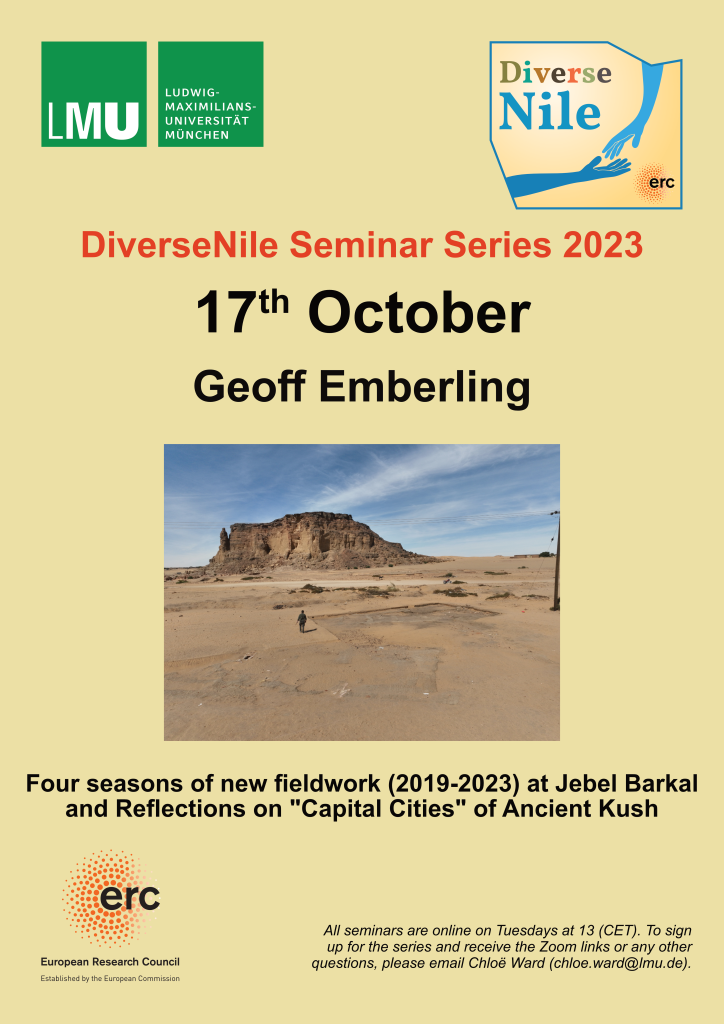Today, winter term has started in Munich and another DiverseNile Seminar is approaching.
Although we are still very concerned about the current situation in Sudan, with the terrible conflict ongoing since more than 6 months, threatening and endangering civilians and also cultural heritage, we are delighted to host our next event dedicated to Sudanese archaeology.
Tomorrow’s speaker will be Geoff Emberling, Associate Research Scientist of the Kelsey Museum at the University of Michigan.

Geoff is well known for his comparative perspectives on ancient cities, states, empires, and ethnicity. Originally a Near Eastern Archaeologist by training, he has conducted fieldwork in Sudan since 2007 and has become an internationally renowned expert on the Kerma period and the Naptan empire.
His talk for the DiverseNile Seminar will give insights into his current project at one of the most impressive landmarks of Sudan: Jebel Barkal. This holy mountain has an amazing history throughout the ages and the site incorporates temples, pyramids and palaces. The Jebel Barkal Archaeological Project (JBAP), co-directed by Geoff and El-Hassan Ahmed Mohamed, started its work in 2016. This new project aims to unearth Jebel Barkal as an ancient city—the “lost city” of Napata, the urban backbone of all the known palaces and temples.
I am very much looking forward to hear more about the latest research at a fascinating site in Sudan. Although Jebel Barkal and questions about Kushite capital cities are beyond our DiverseNile Bronze Age perspectives, this case study has much potential to address crucial questions about urban sites, their infrastructure, organization and hinterland.
